Introduction
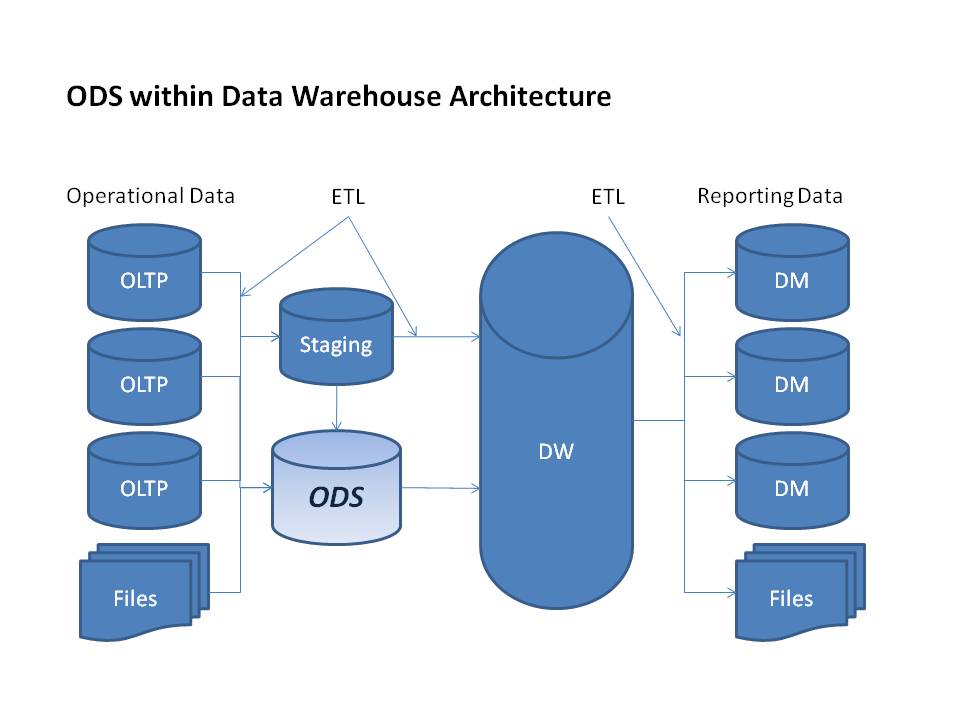
DATA WAREHOUSING AND DATA MINING Operational Data and Datastore
Operational Data Provisioning (ODP) provides a technical infrastructure for data extraction and data replication (including delta mechanisms) from SAP NetWeaver or ABAP-based applications.

Operational Data Provisioning API deep dive CDS Extraction SAP Blogs
You can use Operational Data Provisioning (ODP) to connect an SAP system, such as an ERP system, as the source system to the BW system. Communication is performed using RFC. DataSources are provided for use in BW using the ODP context for DataSources (extractors) (SAPI).

PPT Deep Dive into Leveraging New Features and Functions of SAP NetWeaver BW 7.4 PowerPoint
Operational Data Provisioning provides a technical infrastructure that you can use to support two different application scenarios. The first of these is Operational Analytics for decision making in operative business processes. The other is data extraction and replication. Operational Analytics

Operational Data Provisioning API deep dive CDS Extraction SAP Blogs
Operational Data Provisioning provides a technical infrastructure that you can use to support two different application scenarios. The first of these is Operational Analytics for decision-making in operative business processes. The other is data extraction and replication. Operational Analytics

How a Next Generation Operational Data Store (ODS) Drives Digital Transformation Gigaspaces
Operational Data Provisioning (ODP) is an SAP Netweaver based Framework that became available from Netweaver 7.30 (in the context of BW: Netweaver 7.40). It provides a new way to connect ERP to other systems and different BW systems. It is a flexible framework which allows unifying the data transfer between source and target system.
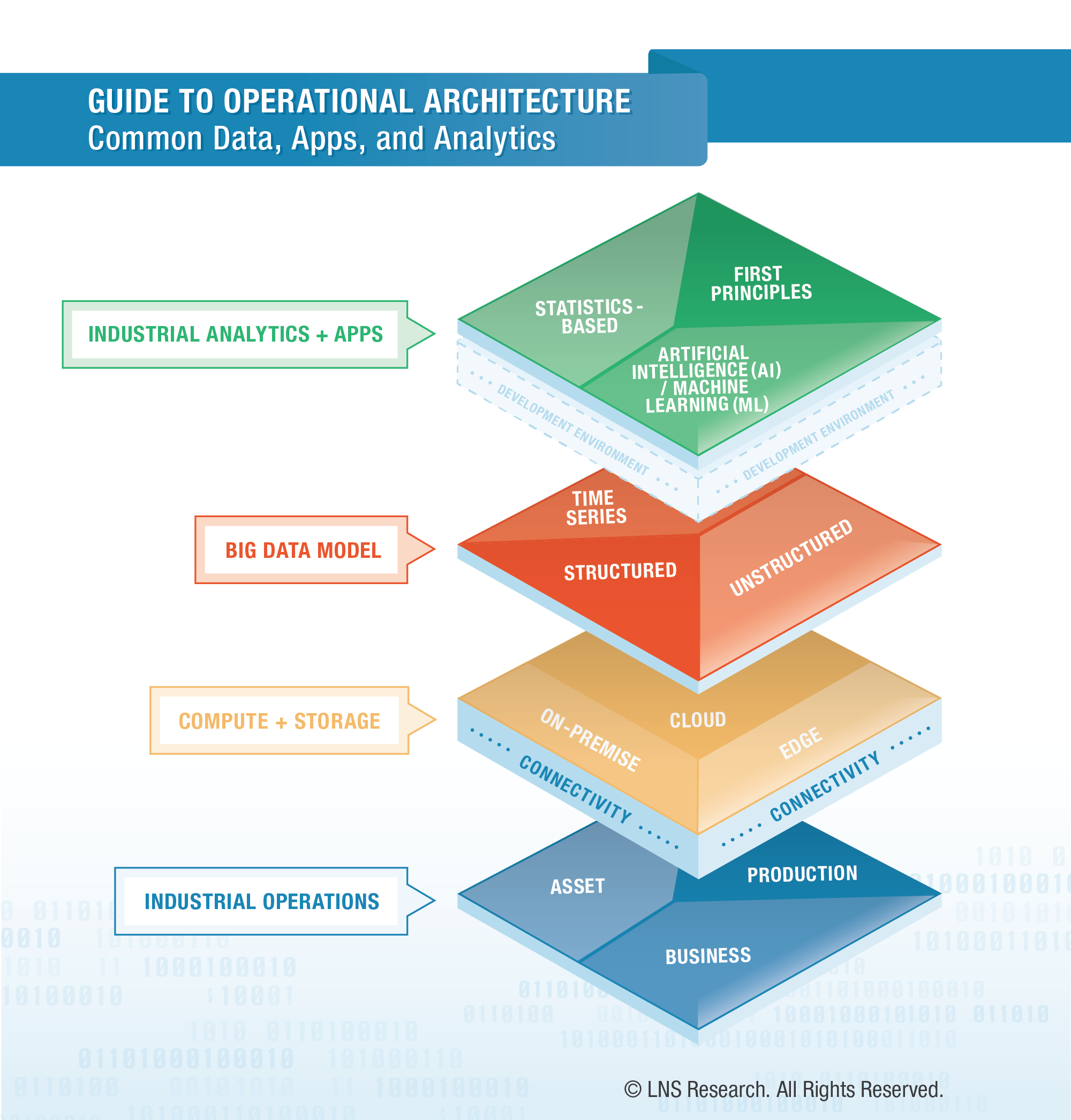
How the Right Operational Architecture Powers the Analytics That Matter
Operational data provisioning supports extraction and replication scenarios for various target applications and supports delta mechanisms in these scenarios. In case of a delta procedure, the data from a source (the so called ODP Provider) is automatically written to a delta queue using an update process or passed to the
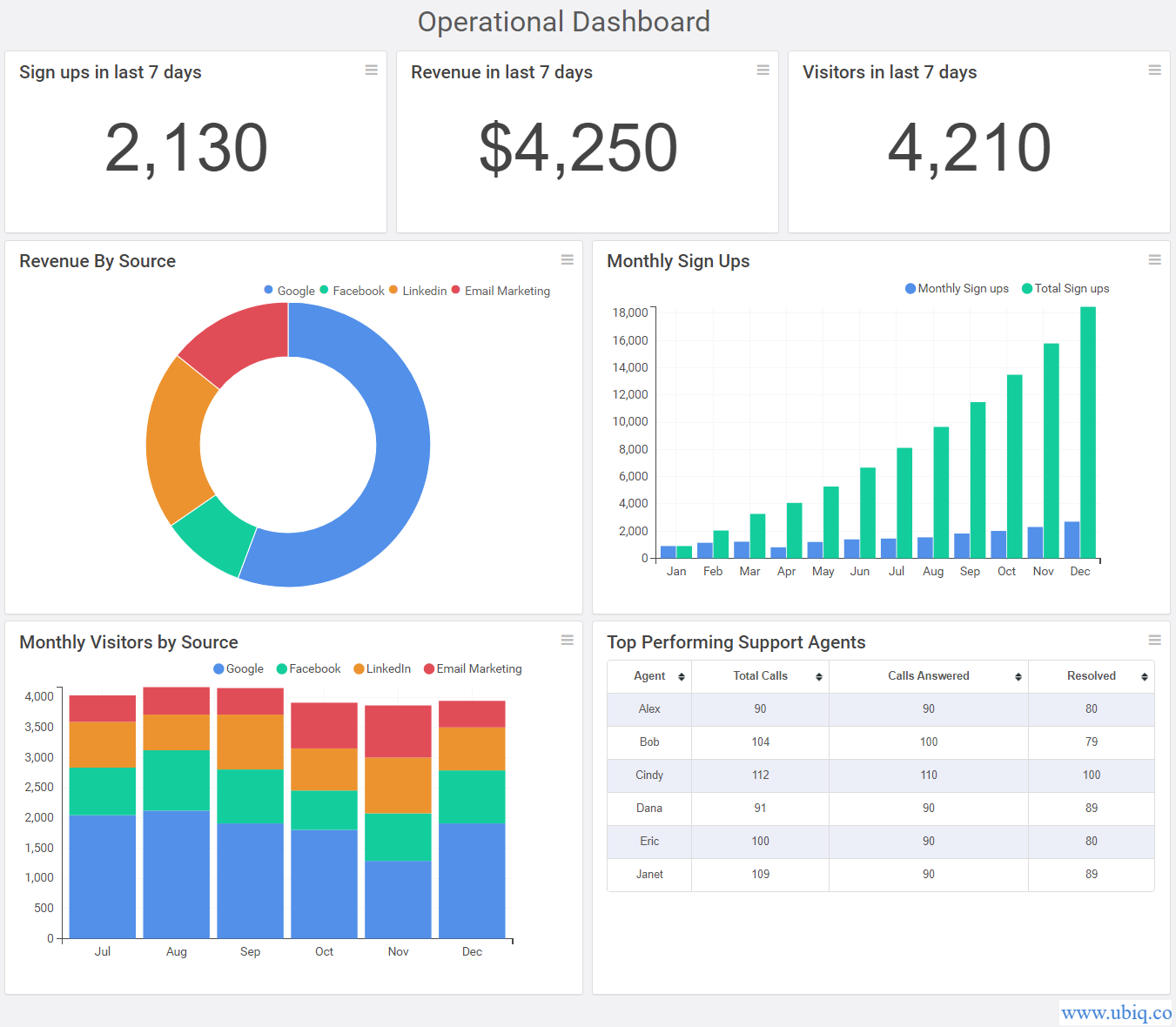
How to Create Operational Dashboard For Your Business Ubiq BI Blog
Operational Data Provisioning - Meaning and Overview. ODP or Operational Data Provisioning is the technical infrastructure used widely to support two distinct applications in a way that data extraction and data analysis becomes a smooth task. The two used applications in ODP are Operational Analytics and data extraction and replication.

Operational Data Provisioning (SAP ODP) Compamind
Um Operational Data Provisioning einsetzen zu können, müssen Sie eine entsprechende Konfiguration durchführen. Der Einsatz von SAP HANA oder des SAP NetWeaver Business Warehouse Accelerators (BWA) ist optional. Wenn Sie SAP HANA oder den BWA für Operational Data Provisioning einsetzen, sind zusätzliche Konfigurationsschritte nötig.
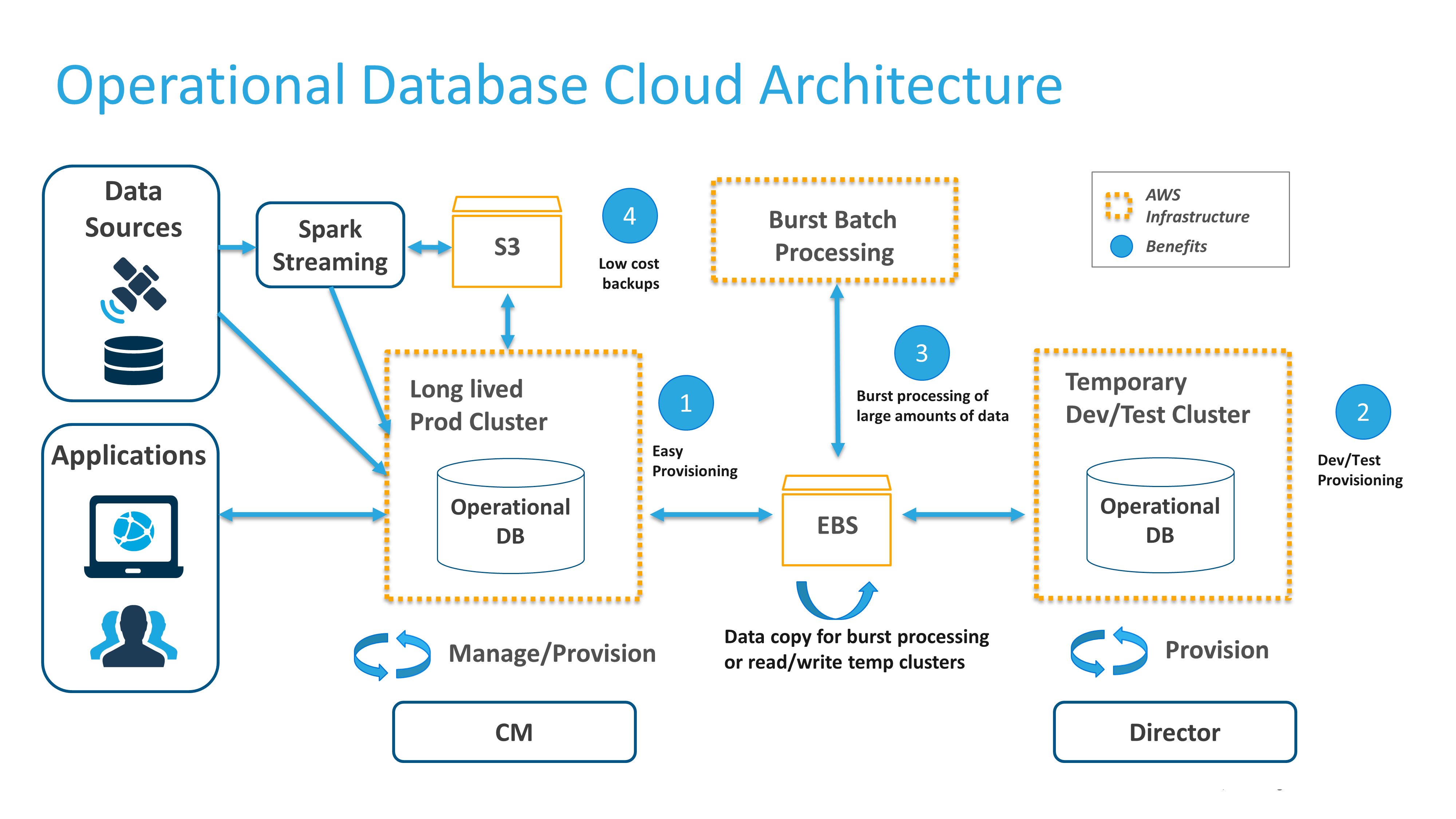
Operational database in the cloud Cloudera
The operational delta queues are a new framework which enables multiple subscribers to replicate data from a set of queues of a provider. The standard BW Extractors (SAPI) present in ECC or S/4 systems have been made ODP compatible via the mass ABAP program 'BS_ANLY_DS_RELEASE_ODP' (SAP Note 2232584) (This is a one-time activity).

The data provisioning workflow Download Scientific Diagram
One challenge that I've seen with Operational Data Provisioning especially in the case of integrating SAP Data Services with Azure Data Lake is recovery of delta loads. Working with Bad Source Data. For example, let's say you have a field in source S/4HANA system that contains an invalid character. Data ingestion takes place and that bad data.

Operational Data Provisioning with SAP BW/4HANA Book and EBook
Operational Data Provisioning (ODP) offers an unified technology for data provisioning and consumption in SAP BW/4HANA. It encompasses the Operational Delta Queue (ODQ). The data in the source is available for extraction in the form of operational data providers.
What is ODS (Operational Data Store) and how it differs from Data Warehouse (DW) r/SQLServer
Operational Data Provisioning provides a technical infrastructure that you can use to support two different application scenarios. The first of these is Operational Analytics for decision making in operative business processes (see Introduction to Operational Data Provisioning for more information).

Data Warehouse and Data Provisioning INTELLIOPZ
Use operational data provisioning to extract SAP S/4HANA finance data, logistics data, and more Connect to data sources such as SAP HANA calculation views, CDS views, and other SAP BW systems About the Book About the E-book 608 pages, hardcover, 1.7 in. Reference book format 7 x 10 in. Printed black and white on 60# offset paper from.

what is operational database? Where is operational database use? How operational database works
ODP is a framework in SAP ABAP applications for transferring data between systems. The Xtract ODP component acts as a subscriber (consumer) and subscribes to a data provider, for example to an SAP Extractor or to a CDS View. Operational data provisioning supports mechanisms to load data incrementally, e.g., from extractors, ABAP CDS Views and.
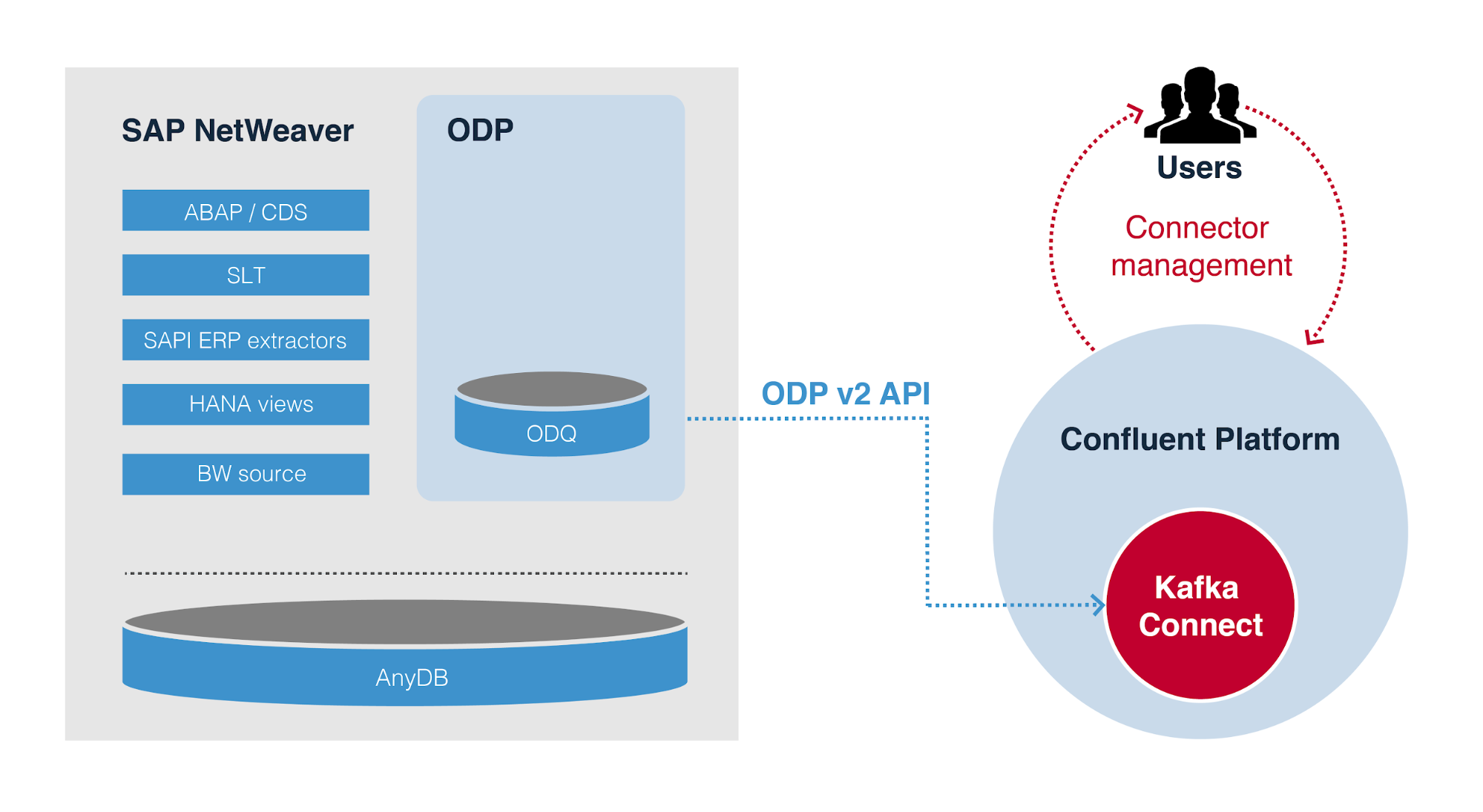
Integrate Apache Kafka and SAP with the Kafka Connect ODP Source Connector
Operational data provisioning supports extraction and replication scenarios for various target applications and supports delta mechanisms in these scenarios. Besides SAP BW/4HANA and SAP BW, Operational Data Provisioning can be used to provide data to other SAP Products such as SAP Data Services or SAP HANA Smart Data Integration. The following.

SAP Operational Data Provisioning SAP’s version of an Enterprise Data Hub Part 1
From the context menu of [ODP_SAP] under the Data Sources folder, select New > Source System… as shown below. You'll see the screen shown in the next figure. Provide the ODP source system Name and its Description, then select Next. Set the Connection Type to ODP, as shown here. Next, you'll choose the type of system and RFC, as shown in.